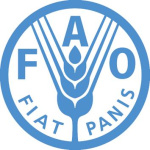- Industry: Agriculture
- Number of terms: 87409
- Number of blossaries: 0
- Company Profile:
Established in October 1945 with the objective of eliminating hunger and improving nutrition and standards of living by increasing agricultural productivity, FAO coordinates the efforts of governments and technical agencies in programs for developing agriculture, forestry, fisheries, and land and ...
The production of a population of plasma cells all producing the same antibody in response to the interaction between a B lymphocyte producing that specific antibody and the antigen bound by that antibody.
Industry:Biotechnology
The production of an organism, cell or organelle like itself (self propagation).
1. Sexual reproduction: the regular alternation (in the life-cycle of haplontic, diplontic and diplohaplontic organisms) of meiosis and fertilization (karyogamy) which provides for the production of offspring. The main biological significance of sexual reproduction lies in the fact that it achieves genetic recombination.
2. Asexual or agamic reproduction: the development of a new individual from either a single cell (agamospermy) or from a group of cells (vegetative reproduction) in the absence of any sexual process. <i>See also</i> apomixis.
Industry:Biotechnology
The production of antibody by B cells of the immune system in response to the presence of a foreign antigen.
Industry:Biotechnology
The production of immunity in an individual by artificial means. Active immunization involves the introduction, either orally or by infection, of specially treated bacteria, viruses or their toxins so as to stimulate the production of antibodies.
Industry:Biotechnology
The progression of cytological, genetic and cellular changes that culminate in a tumour.
Industry:Biotechnology
The proportion by which the fitness of a genotype is less than the fitness of a standard genotype, which is usually the genotype with the highest fitness. In general, relative fitness = 1 - <i>s</i>.
Industry:Biotechnology
The proportion of gametes that have arisen from recombination between two loci. It is estimated as the number of recombinant individuals among a set of offspring of a particular mating, divided by the total number of offspring from that mating. Represented by the Greek letter theta (). Linkage maps are created from estimates of recombination fraction between all pair-wise combinations of loci.
Industry:Biotechnology
The proportion of gametes that have arisen from recombination between two loci. It is estimated as the number of recombinant individuals among a set of offspring of a particular mating, divided by the total number of offspring from that mating. Represented by the Greek letter theta (). Linkage maps are created from estimates of recombination fraction between all pair-wise combinations of loci.
Industry:Biotechnology
The protein coat of a virus. The capsid often determines the shape of the virus.
Industry:Biotechnology
The provirus (q.v.) of a porcine retrovirus. With the increasing interest in the use of pig organs for xenotransplantation to humans, there has been concern that PERVs could be activated after transplantation, creating an infection in the human recipient.
Industry:Biotechnology
